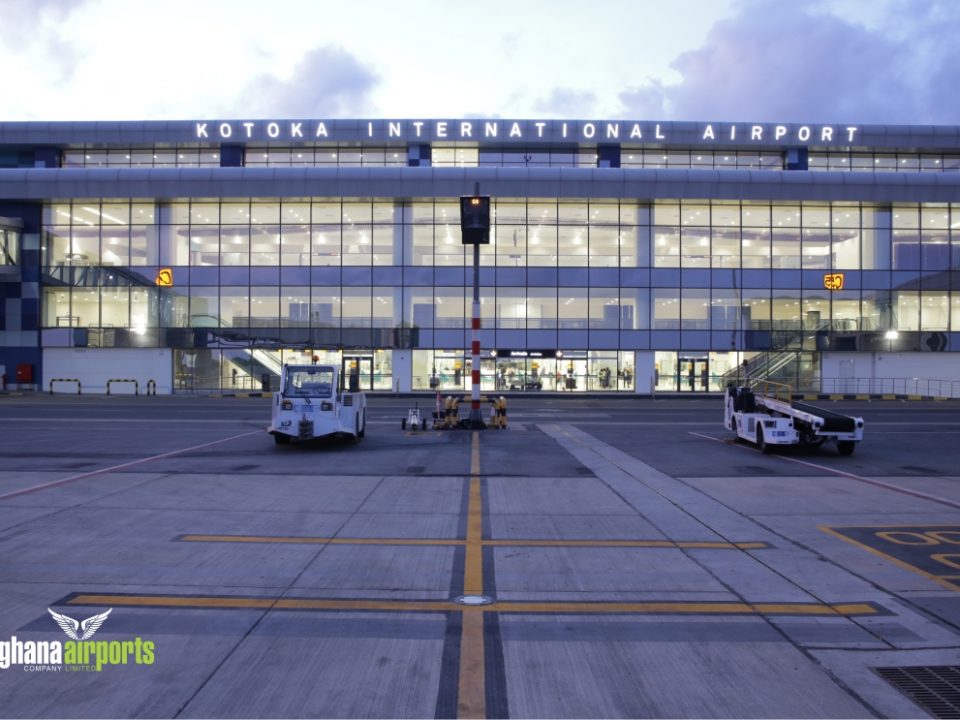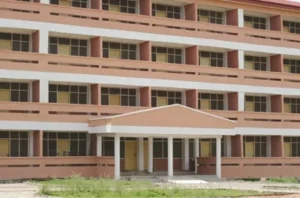
The Ghana Airports Company Limited (GACL) has officially terminated its revenue assurance audit agreement with Evatex Logistics, with the contract set to expire on August 27, 2025. The decision was conveyed through a formal notice dated July 28, 2025, and signed by the Managing Director, Yvonne Opare. According to the letter, the contract is being ended based on a provision in the agreement that allows for termination without the need for specific justification, provided that a one-month notice is given.
Evatex Logistics, which had been operating from the premises of Kotoka International Airport (KIA), was directed to vacate the facility before or by the end of the termination date. The company had been tasked with auditing and monitoring airport revenue streams, serving as part of GACL’s broader financial accountability and revenue management strategy.
Although the termination letter did not cite any particular reason or reference any investigations, the timing of the decision has raised questions among industry observers and legal analysts. Just three days before GACL issued its notice, Paul Adom-Otchere, the former Chairman of the GACL Board, was summoned by the Office of the Special Prosecutor (OSP) in connection with suspected irregularities surrounding the awarding of the Evatex contract. The contract, which was signed in December 2024, is currently under scrutiny for possible breaches of public procurement laws, including sole-sourcing without appropriate approvals and sidestepping board oversight mechanisms.
The OSP’s probe has intensified focus on the internal governance structures at GACL, particularly during the tenure of the previous board. While GACL’s termination letter to Evatex did not allude to the ongoing investigation, many legal and policy experts interpret the move as a deliberate attempt to mitigate reputational and legal risks. By severing ties with Evatex, GACL may be trying to distance itself from the contract and shield its current leadership from potential fallout as the anti-corruption investigation gains momentum.
Legal professionals familiar with public sector governance suggest that the termination could be a calculated decision by GACL’s management to exercise damage control before the investigation implicates more individuals or reveals further systemic issues. In the world of public administration, such actions are often taken to demonstrate institutional responsiveness and a commitment to compliance and transparency, even in the absence of direct admission of wrongdoing.
Further fueling speculation about broader institutional implications is the fact that GACL’s termination notice was also copied to multiple departments within the company, including the legal, finance, and commercial teams. This internal communication move suggests that the matter is being treated with heightened sensitivity and that other contracts issued during the tenure of the former board may soon come under review. Some insiders have hinted that GACL is already conducting internal audits of similar agreements to identify any that may have violated procurement regulations or failed to follow due process.
Evatex Logistics, for its part, has not issued any public response to the termination notice. The company remains silent, despite the growing media attention and public interest in the circumstances surrounding both the awarding and the termination of the contract. It is unclear whether Evatex will pursue legal action or seek clarification regarding the reasons behind the sudden cancellation.
In the meantime, stakeholders in Ghana’s aviation and transport sectors are closely monitoring the situation. The probe by the Office of the Special Prosecutor is considered part of a broader government effort to clamp down on corruption and irregularities in public procurement processes, especially in strategic state-owned enterprises like GACL.
The contract with Evatex was originally positioned as a revenue assurance initiative aimed at boosting the financial health of the Ghana Airports Company. By outsourcing revenue monitoring to a third party, GACL hoped to reduce revenue leakages and improve collection efficiency. However, critics had previously questioned the transparency of the contracting process, alleging that the contract may not have gone through competitive bidding and that the company may not have been adequately vetted before the agreement was signed.
Paul Adom-Otchere, the former GACL Board Chair now being questioned by the OSP, has yet to publicly comment on the investigation or the Evatex contract. During his time in office, he was a vocal advocate for infrastructural investment and airport modernization, but critics have long raised concerns about governance under his watch. His invitation by the Special Prosecutor marks a significant development in what could become a broader inquiry into the administration of contracts at GACL and possibly other state entities.
Industry sources anticipate that additional contracts awarded during the tenure of the former board will be subjected to similar scrutiny. If irregularities are confirmed, this could lead to a wave of contract cancellations and possibly even legal proceedings against individuals found culpable.
As the situation continues to unfold, GACL has yet to release an official public statement explaining the rationale behind the termination or clarifying its current position regarding the OSP’s ongoing investigation. However, observers note that the company’s silence may be a strategic decision designed to avoid compromising any future legal proceedings or internal disciplinary measures.
In the absence of a detailed public explanation, the prevailing sentiment is that GACL’s decision was driven by the need to safeguard the institution’s credibility amid increasing public pressure for accountability and transparency in public-sector governance. The development also serves as a reminder of the critical importance of due process, board oversight, and compliance with procurement laws in public sector contracting.







